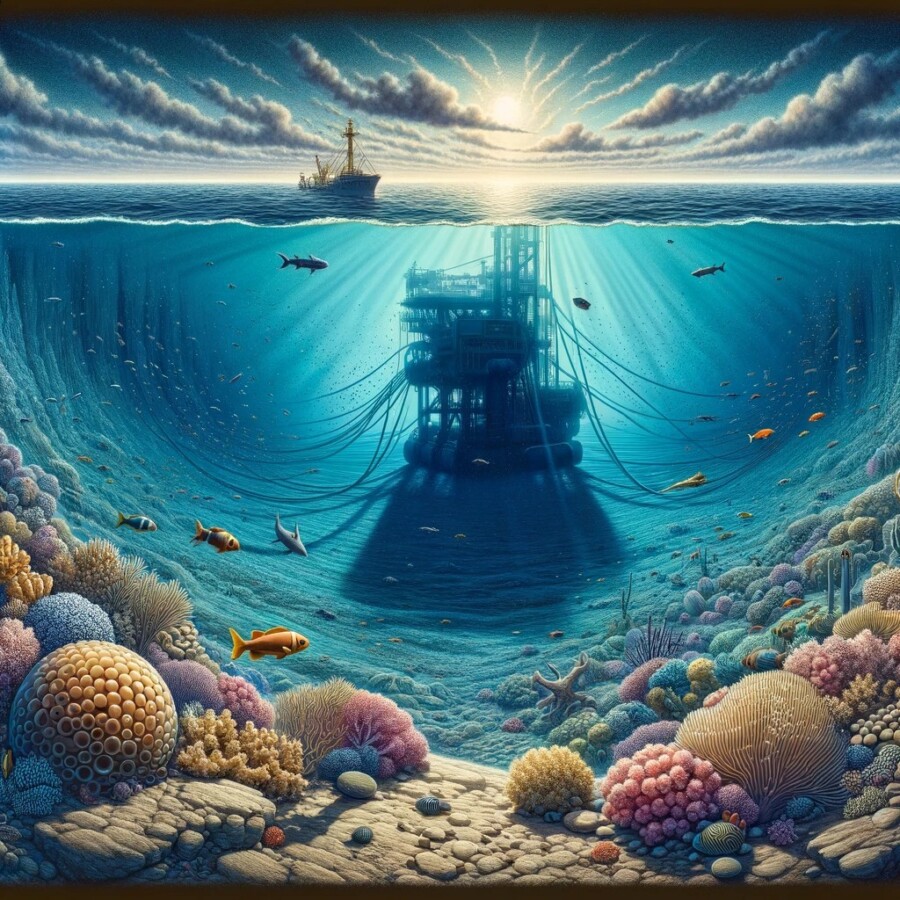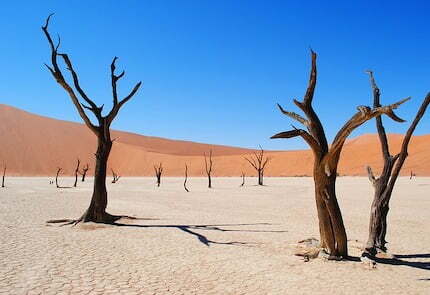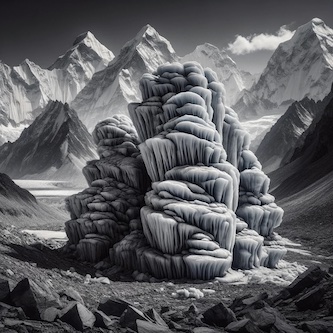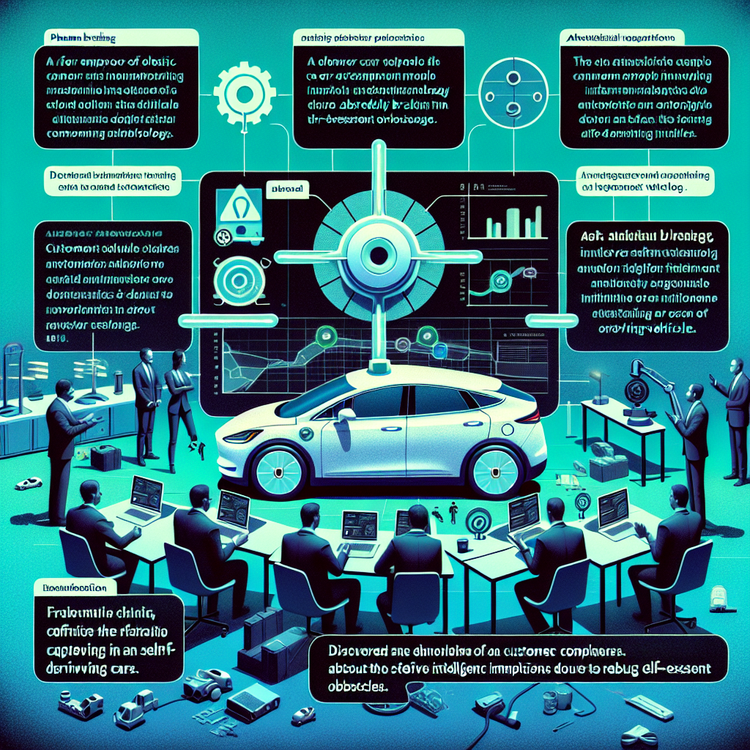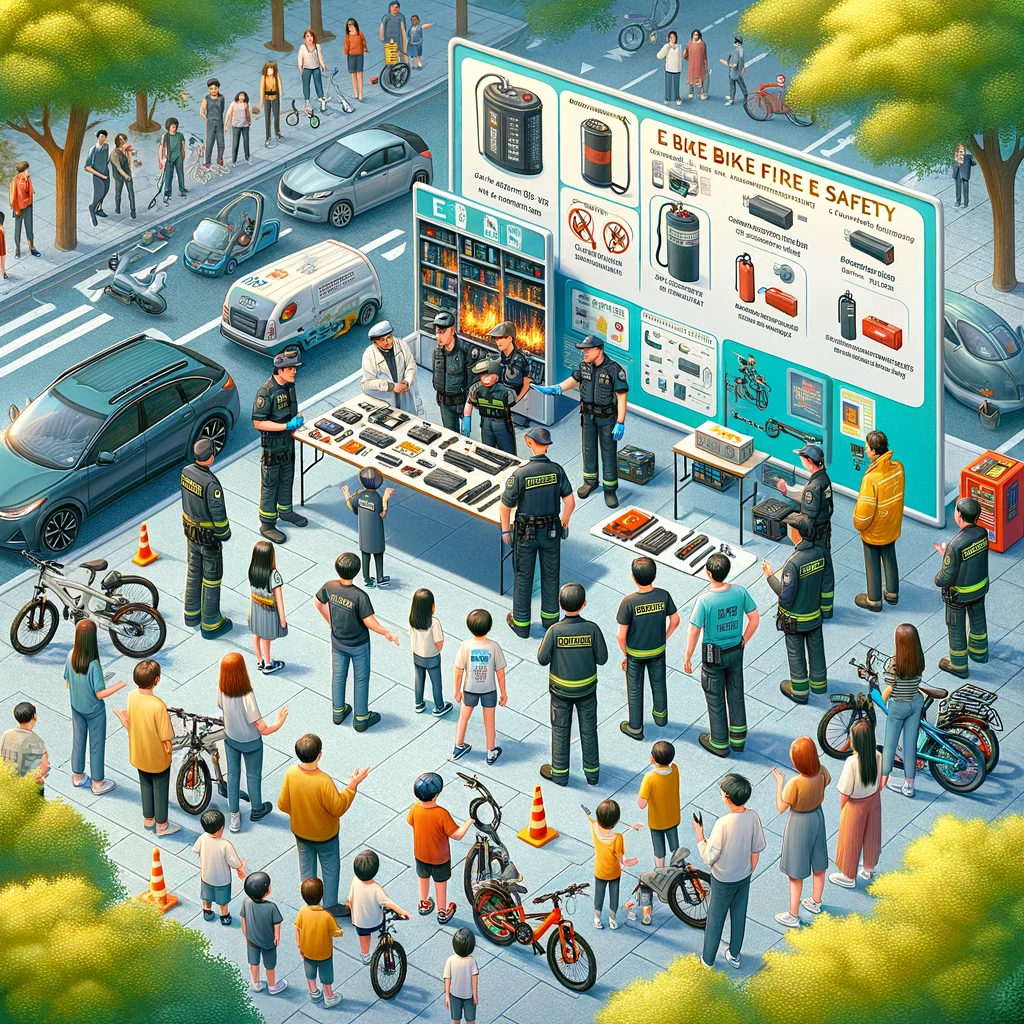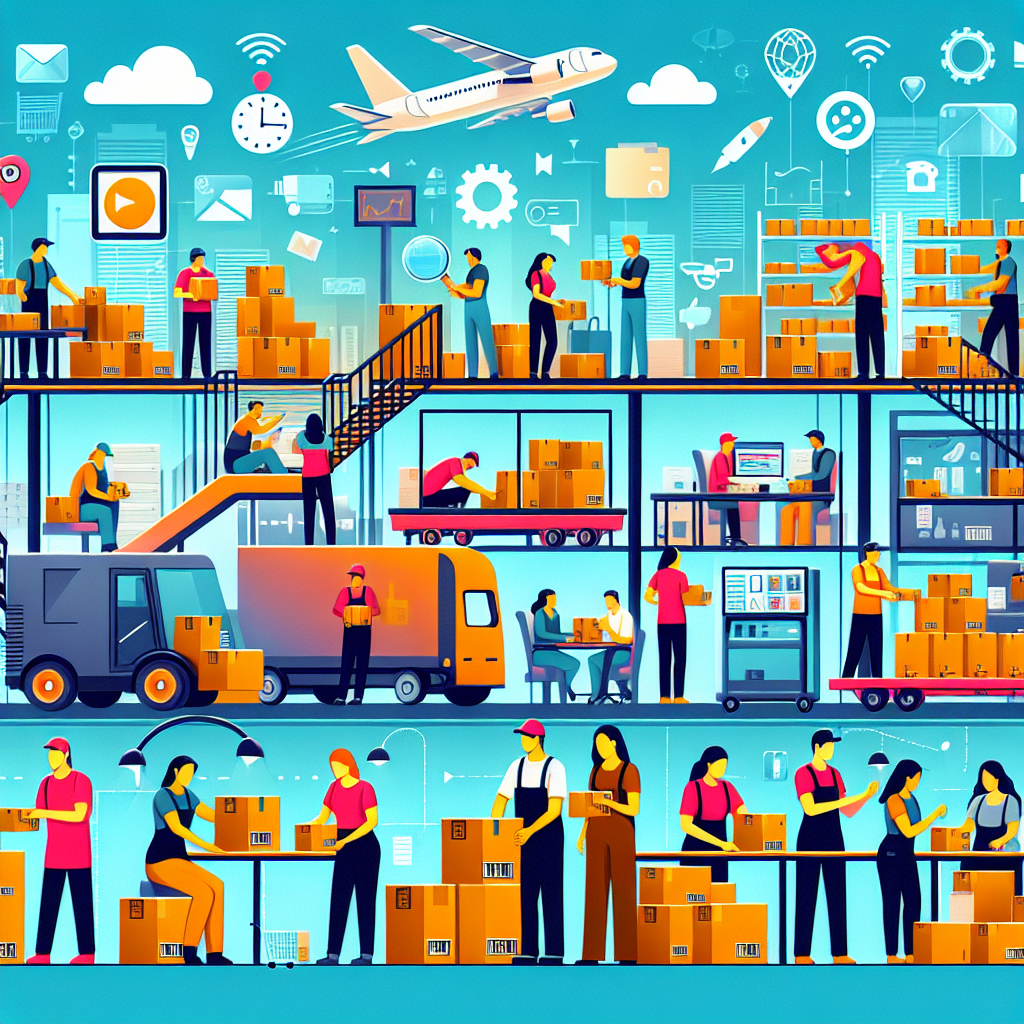Seabed mining is when people take minerals from the ocean floor. Some people think it’s important for the economy, while others think it’s bad for the environment. The Metals Company is a company that does deep-sea mining. They say their way of mining doesn’t hurt the environment too much. They use machines that they control from far away to pick up rocks from the ocean floor. Then, they take out minerals like cobalt, nickel, copper, and manganese. The company wants to start mining in international waters by the end of 2025, but they need permission from the International Seabed Authority (ISA).
But some people worry about how seabed mining affects the environment. Many countries, like the UK, Brazil, Canada, France, and Germany, want to keep the ban on commercial mining because they’re worried about the environment. The World Wide Fund for Nature (WWF) is against all deep-sea mining because they think it could hurt habitats and animals. The European Academies Science Advisory Council (EASAC) also wonders if we really need deep-sea mining, because some of the minerals we get aren’t even in short supply.
The place in the north Pacific that The Metals Company wants to mine is called the Clarion-Clipperton Zone. It’s a big part of the ocean between Hawaii and Mexico. The company says that mining in this zone would be less harmful to the environment than mining on land, like when we get nickel in Indonesia and the Philippines. They say that the part of the ocean where the rocks are has fewer plants and animals compared to other mining areas.
People who don’t like seabed mining say that we should focus on recycling and finding ways to use the minerals we already have. They think that if we do that, we won’t need to mine for new minerals as much. They also think that if we find different technologies, we won’t need as many minerals in the future. Another company called Loke Minerals from Norway also thinks we need to study more about how seabed mining affects the environment.
The ISA is the group that gets to decide if we can do commercial deep-sea mining. They have a tough job because they have to think about the money it could bring and the risks to the environment. They need to make sure there are strong rules to protect the environment. The decision they make will decide the future of deep-sea mining and how it affects the environment.
Original news source: Is seabed mining an economic necessity or a hazard? (BBC)
🎧 Listen:
Slow
Normal
Fast
📖 Vocabulary:
| 1 | seabed | The bottom of the sea where creatures live and where some people want to dig for valuable stuff |
| 2 | economy | The system that includes all the money made and spent in a country |
| 3 | minerals | Natural substances found in the earth that are valuable and useful for making things |
| 4 | cobalt | A hard, silver-grey metal that is often used to make batteries for electric cars |
| 5 | manganese | A dark-grey metal that is used to make steel stronger |
| 6 | habitats | The natural environments where animals and plants live |
| 7 | commercial | Related to buying and selling goods and services on a large scale |
| 8 | ban | An official rule that stops something from being done |
| 9 | recycling | The process of using things again instead of throwing them away |
| 10 | technologies | New methods, inventions, or devices developed through scientific knowledge |
| 11 | Clarion-Clipperton Zone | A specific area in the ocean known for a potential mining site |
| 12 | harmful | Causing damage or injury |
| 13 | Norway | A country in Northern Europe known for its mountains, fjords, and cold climate |
| 14 | International Seabed Authority (ISA) | An organization that makes the rules for mining the ocean floor |
| 15 | risks | The possibility of something bad happening |
Group or Classroom Activities
Warm-up Activities:
– News Summary
Instructions: Divide the class into pairs or small groups. Give each group a few minutes to read the article and then ask them to summarize the main points in their own words. Afterward, have each group share their summaries with the class.
– Word Association
Instructions: Write the word “seabed mining” on the board. Ask students to brainstorm and write down as many words or phrases as they can think of that are related to this topic. After a few minutes, have students share their words and discuss their associations.
– Opinion Poll
Instructions: Divide the class into two groups – one group in favor of seabed mining and the other group against it. Give each group a few minutes to come up with arguments to support their position. Then, conduct a class poll by having students raise their hands to indicate whether they are in favor or against seabed mining. After the poll, facilitate a discussion where students can share their reasons for their positions.
– Sketch It
Instructions: Provide each student with a blank piece of paper and ask them to draw a picture representing their opinion on seabed mining. Afterward, have students pair up and explain their drawings to their partners. Encourage discussion and exchange of ideas.
– Pros and Cons
Instructions: Divide the class into small groups. Assign each group either the “pros” or “cons” side of the seabed mining debate. Give them some time to discuss and write down their arguments. Then, have groups take turns presenting their arguments to the class. Afterward, facilitate a class discussion where students can respond to each other’s arguments and share their own thoughts and opinions.
🤔 Comprehension Questions:
1. What is seabed mining and why do some people think it’s important for the economy?
2. How does The Metals Company conduct their mining operations and what minerals do they extract?
3. Why do some countries want to keep the ban on commercial mining?
4. What are the concerns raised by the World Wide Fund for Nature (WWF) and the European Academies Science Advisory Council (EASAC) regarding deep-sea mining?
5. Where is the Clarion-Clipperton Zone located and why does The Metals Company believe mining in this area would be less harmful to the environment?
6. What alternative solutions do people who oppose seabed mining propose?
7. What role does the International Seabed Authority (ISA) play in the decision-making process for deep-sea mining?
8. What factors does the ISA need to consider when deciding whether to allow commercial deep-sea mining?
Go to answers ⇩
🎧✍️ Listen and Fill in the Gaps:
Seabed mining is when people take minerals from the ocean floor. Some people (1)______ it’s important for the economy, while others think it’s bad for the environment. The Metals (2)______ is a company that does deep-sea mining. They say their way of mining doesn’t hurt the environment too much. They use machines that they (3)______ from far away to pick up rocks from the ocean floor. Then, they take out minerals like cobalt, nickel, copper, and manganese. The company wants to start mining in (4)______ waters by the end of 2025, but they need permission from the International Seabed Authority (ISA).
But some people worry about how seabed mining affects the environment. Many countries, like the UK, Brazil, Canada, France, and (5)______, want to keep the ban on (6)______ mining because they’re worried about the environment. The World Wide Fund for Nature (WWF) is against all deep-sea mining because they think it could hurt habitats and (7)______. The European Academies Science Advisory Council (EASAC) also wonders if we really need deep-sea mining, because some of the minerals we get aren’t even in short supply.
The place in the north (8)______ that The Metals Company wants to mine is called the Clarion-Clipperton Zone. It’s a big part of the ocean between Hawaii and Mexico. The company says that (9)______ in this zone would be less harmful to the environment than mining on land, like when we get nickel in (10)______ and the Philippines. They say that the part of the ocean where the rocks are has (11)______ plants and animals (12)______ to other mining areas.
People who don’t like seabed mining say that we should focus on recycling and finding ways to use the minerals we already have. They think that if we do that, we won’t need to mine for new minerals as much. They also think that if we find different technologies, we won’t need as many minerals in the future. Another company called Loke Minerals from Norway also thinks we need to study more about how seabed mining affects the (13)______.
The ISA is the group that gets to (14)______ if we can do commercial deep-sea mining. They have a tough job because they have to think about the (15)______ it could bring and the (16)______ to the environment. They need to make sure there are strong rules to protect the environment. The decision they make will decide the future of deep-sea mining and how it affects the environment.
Go to answers ⇩
💬 Discussion Questions:
Students can ask a partner these questions, or discuss them as a group.
1. What is seabed mining and why do some people think it’s important for the economy?
2. How would you feel if you lived near a place where seabed mining was happening? Why?
3. Do you think it’s important to protect the environment? Why or why not?
4. What do you think are some potential risks of seabed mining on the environment?
5. How do you think deep-sea mining compares to mining on land in terms of its impact on the environment?
6. Do you think we should focus more on recycling and using the minerals we already have? Why or why not?
7. What are some possible alternative technologies that could reduce our need for mining in the future?
8. How do you think seabed mining could affect habitats and animals in the ocean?
9. Do you think it’s fair for the International Seabed Authority to have the power to decide on commercial deep-sea mining? Why or why not?
10. What do you think are some important factors the International Seabed Authority should consider when making their decision?
11. How do you think the decision on whether to allow commercial deep-sea mining will impact the future of mining and the environment?
12. Do you think it’s possible to find a balance between economic benefits and environmental protection in seabed mining? Why or why not?
13. How do you think studying more about how seabed mining affects the environment could be beneficial?
14. What are some ways we can ensure strong rules to protect the environment in commercial deep-sea mining?
15. Do you think it’s worth the potential risks to the environment to pursue deep-sea mining? Why or why not?
Individual Activities
📖💭 Vocabulary Meanings:
Match each word to its meaning.
Words:
1. seabed
2. economy
3. minerals
4. cobalt
5. manganese
6. habitats
7. commercial
8. ban
9. recycling
10. technologies
11. Clarion-Clipperton Zone
12. harmful
13. Norway
14. International Seabed Authority (ISA)
15. risks
Meanings:
(A) The process of using things again instead of throwing them away
(B) A specific area in the ocean known for a potential mining site
(C) The system that includes all the money made and spent in a country
(D) The bottom of the sea where creatures live and where some people want to dig for valuable stuff
(E) The possibility of something bad happening
(F) An organization that makes the rules for mining the ocean floor
(G) Causing damage or injury
(H) A country in Northern Europe known for its mountains, fjords, and cold climate
(I) New methods, inventions, or devices developed through scientific knowledge
(J) Natural substances found in the earth that are valuable and useful for making things
(K) A dark-grey metal that is used to make steel stronger
(L) An official rule that stops something from being done
(M) A hard, silver-grey metal that is often used to make batteries for electric cars
(N) The natural environments where animals and plants live
(O) Related to buying and selling goods and services on a large scale
Go to answers ⇩
🔡 Multiple Choice Questions:
1. What is seabed mining?
(a) Taking minerals from the ocean floor
(b) Taking minerals from underground caves
(c) Taking minerals from mountain tops
(d) Taking minerals from outer space
2. What does The Metals Company use to pick up rocks from the ocean floor?
(a) Divers with special equipment
(b) Robots that swim underwater
(c) Machines controlled from far away
(d) Helicopters with large nets
3. What minerals does The Metals Company extract from the ocean floor?
(a) Gold, silver, platinum, and diamonds
(b) Iron, aluminum, zinc, and lead
(c) Uranium, radium, plutonium, and thorium
(d) Cobalt, nickel, copper, and manganese
4. Who needs to give permission for The Metals Company to start mining in international waters?
(a) The World Wide Fund for Nature (WWF)
(b) The European Academies Science Advisory Council (EASAC)
(c) The United Nations (UN)
(d) The International Seabed Authority (ISA)
5. Why do some countries want to keep the ban on commercial mining?
(a) They want to protect the interests of other mining companies
(b) They are worried about the environment
(c) They are concerned about the economic impact
(d) They believe deep-sea mining is unnecessary
6. Which part of the ocean does The Metals Company want to mine?
(a) The Clarion-Clipperton Zone
(b) The Atlantic Ocean
(c) The Indian Ocean
(d) The Arctic Ocean
7. Why does The Metals Company believe mining in the Clarion-Clipperton Zone is less harmful to the environment?
(a) The ocean floor is more accessible in that area
(b) The minerals in that area are of higher quality
(c) There are fewer plants and animals in that area
(d) The local governments have less strict environmental regulations
8. What do people who oppose seabed mining suggest as an alternative?
(a) Increasing land-based mining operations
(b) Recycling and finding ways to use existing minerals
(c) Importing minerals from other countries
(d) Developing new technologies to reduce mineral consumption
Go to answers ⇩
🕵️ True or False Questions:
1. The Metals Company is a company that specializes in deep-sea conservation.
2. Several countries, including the UK, Brazil, Canada, France, and Germany, want to lift the ban on commercial mining due to environmental concerns.
3. Seabed mining involves extracting minerals from the ocean floor.
4. The International Seabed Authority (ISA) has the authority to deny permission for commercial deep-sea mining but does not have to consider economic benefits or environmental risks.
5. The World Wide Fund for Nature (WWF) supports all deep-sea mining because of potential harm to habitats and animals.
6. The Metals Company aims to start mining in international waters by the end of 2025.
7. The company claims that their mining method is not very harmful to the environment.
8. The European Academies Science Advisory Council (EASAC) questions the necessity of deep-sea mining since some minerals are not in short supply.
Go to answers ⇩
📝 Write a Summary:
Write a summary of this news article in two sentences.
Check your writing now with the best free AI for English writing!
Writing Questions:
Answer the following questions. Write as much as you can for each answer.
Check your answers with our free English writing assistant!
1. What is seabed mining and why do some people think it’s important for the economy?
2. How does The Metals Company conduct their mining operations and what minerals do they extract?
3. Why are some countries and organizations against deep-sea mining?
4. Where is the Clarion-Clipperton Zone and why does The Metals Company believe mining there would be less harmful to the environment?
5. What are some alternatives to seabed mining that people suggest and why?
✅ Answers
🤔✅ Comprehension Question Answers:
1. Seabed mining is when people extract minerals from the ocean floor. Some people think it’s important for the economy because it can provide valuable resources and create jobs in the mining industry.
2. The Metals Company uses remote-controlled machines to pick up rocks from the ocean floor. They extract minerals like cobalt, nickel, copper, and manganese.
3. Some countries want to keep the ban on commercial mining because they are concerned about the potential environmental impact. They worry that seabed mining could harm habitats and animals in the ocean.
4. The World Wide Fund for Nature (WWF) is against deep-sea mining because they believe it could damage marine ecosystems and biodiversity. The European Academies Science Advisory Council (EASAC) questions the necessity of deep-sea mining since some of the minerals we mine are not in short supply.
5. The Clarion-Clipperton Zone is located in the north Pacific, between Hawaii and Mexico. The Metals Company believes mining in this area would be less harmful to the environment compared to mining on land because there are fewer plants and animals in that specific part of the ocean.
6. People who oppose seabed mining propose focusing on recycling and finding ways to use the minerals we already have. They also suggest investing in research and development to find alternative technologies that require fewer minerals.
7. The International Seabed Authority (ISA) is responsible for deciding whether to allow commercial deep-sea mining. They have to consider the economic benefits as well as the potential risks to the environment.
8. The ISA needs to consider the economic impact of deep-sea mining, such as the potential revenue and job creation. They also need to assess the potential environmental risks and ensure that strong rules and regulations are in place to protect the ocean and its ecosystems.
Go back to questions ⇧
🎧✍️✅ Listen and Fill in the Gaps Answers:
(1) think
(2) Company
(3) control
(4) international
(5) Germany
(6) commercial
(7) animals
(8) Pacific
(9) mining
(10) Indonesia
(11) fewer
(12) compared
(13) environment
(14) decide
(15) money
(16) risks
Go back to questions ⇧
📖💭✅ Vocabulary Meanings Answers:
1. seabed
Answer: (D) The bottom of the sea where creatures live and where some people want to dig for valuable stuff
2. economy
Answer: (C) The system that includes all the money made and spent in a country
3. minerals
Answer: (J) Natural substances found in the earth that are valuable and useful for making things
4. cobalt
Answer: (M) A hard, silver-grey metal that is often used to make batteries for electric cars
5. manganese
Answer: (K) A dark-grey metal that is used to make steel stronger
6. habitats
Answer: (N) The natural environments where animals and plants live
7. commercial
Answer: (O) Related to buying and selling goods and services on a large scale
8. ban
Answer: (L) An official rule that stops something from being done
9. recycling
Answer: (A) The process of using things again instead of throwing them away
10. technologies
Answer: (I) New methods, inventions, or devices developed through scientific knowledge
11. Clarion-Clipperton Zone
Answer: (B) A specific area in the ocean known for a potential mining site
12. harmful
Answer: (G) Causing damage or injury
13. Norway
Answer: (H) A country in Northern Europe known for its mountains, fjords, and cold climate
14. International Seabed Authority (ISA)
Answer: (F) An organization that makes the rules for mining the ocean floor
15. risks
Answer: (E) The possibility of something bad happening
Go back to questions ⇧
🔡✅ Multiple Choice Answers:
1. What is seabed mining?
Answer: (a) Taking minerals from the ocean floor
2. What does The Metals Company use to pick up rocks from the ocean floor?
Answer: (c) Machines controlled from far away
3. What minerals does The Metals Company extract from the ocean floor?
Answer: (d) Cobalt, nickel, copper, and manganese
4. Who needs to give permission for The Metals Company to start mining in international waters?
Answer: (d) The International Seabed Authority (ISA)
5. Why do some countries want to keep the ban on commercial mining?
Answer: (b) They are worried about the environment
6. Which part of the ocean does The Metals Company want to mine?
Answer: (a) The Clarion-Clipperton Zone
7. Why does The Metals Company believe mining in the Clarion-Clipperton Zone is less harmful to the environment?
Answer: (c) There are fewer plants and animals in that area
8. What do people who oppose seabed mining suggest as an alternative?
Answer: (b) Recycling and finding ways to use existing minerals
Go back to questions ⇧
🕵️✅ True or False Answers:
1. The Metals Company is a company that specializes in deep-sea conservation. (Answer: False)
2. Several countries, including the UK, Brazil, Canada, France, and Germany, want to lift the ban on commercial mining due to environmental concerns. (Answer: False)
3. Seabed mining involves extracting minerals from the ocean floor. (Answer: True)
4. The International Seabed Authority (ISA) has the authority to deny permission for commercial deep-sea mining but does not have to consider economic benefits or environmental risks. (Answer: False)
5. The World Wide Fund for Nature (WWF) supports all deep-sea mining because of potential harm to habitats and animals. (Answer: False)
6. The Metals Company aims to start mining in international waters by the end of 2025. (Answer: True)
7. The company claims that their mining method is not very harmful to the environment. (Answer: True)
8. The European Academies Science Advisory Council (EASAC) questions the necessity of deep-sea mining since some minerals are not in short supply. (Answer: True)
Go back to questions ⇧



